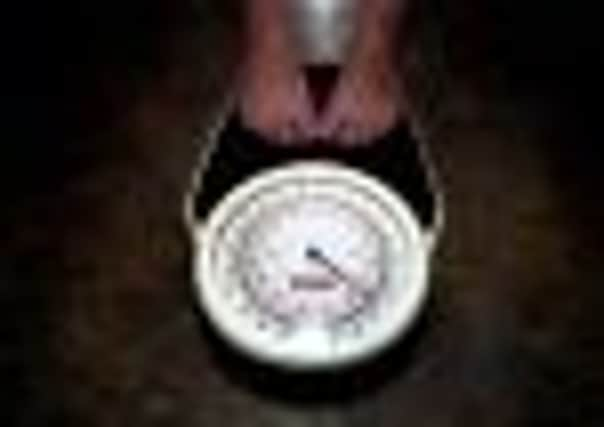Crash dieting good for your health, say scientists


Experts at Aberdeen’s Robert Gordon University say the “crash diets” – where people consume less than 800 calories-a-day – lead to significant weight loss, improve overweight people’s blood pressure, increase fertility and reduce the symptoms of asthma.
The team also found the restrictive diets, often consisting of just meal replacements, had no adverse effects on a dieter’s liver or kidney function and no impact on their bone health.
Advertisement
Hide AdAdvertisement
Hide AdA team from the university’s Centre for Obesity Research and Epidemiology reviewed 32 studies which had looked into the effects of very-low-energy-diets (VLEDs) on obesity and related health issues, such as diabetes and high blood pressure.
Team member Dr Catherine Rolland said: “This review represents a detailed investigation of an important area of controversy.
“We have found long-term benefits such as weight-loss and improvements in cardiovascular risk, respiratory disorders and fertility are achievable with the use of these short-burst, low- calorie diets.”
A VLED is a diet of less than 800 calories per day and is usually comprised of synthetic foods, which are low in calories, with added vitamins and proteins, such as soups, milkshakes and cereal bars.
The restricted calorie intake leads to quicker weight loss, with some people able to lose as many as four stones in 12 weeks.
NHS guidelines back the diets for short-term use, up to around three months, when people go on the diets under the supervision of their GPs who can monitor their heart rate and test their blood to ensure they are getting enough nutrients.
The long-term benefits of the crash diets showed significant weight loss in almost all the previous studies.
The previous research also showed the diets had lowered dieter’s blood pressure and reduced respiratory disorders such as sleep apnoea and asthma.
Advertisement
Hide AdAdvertisement
Hide AdThey also showed the diets increased some peoples’ fertility, something which can be negatively affected in very overweight people, and dramatically reduced the size of dieters’ waists.
The review found little evidence to suggest any negative effects of VLEDs on bone health, liver or kidney function – areas of concern highlighted in some previous weight-loss studies into restricted dieting.
Dieters who took part in regular exercise while counting their calories lost the most weight, the team found.
The review, funded by weight-loss club LighterLife, was published in the British Journal of Nutrition.